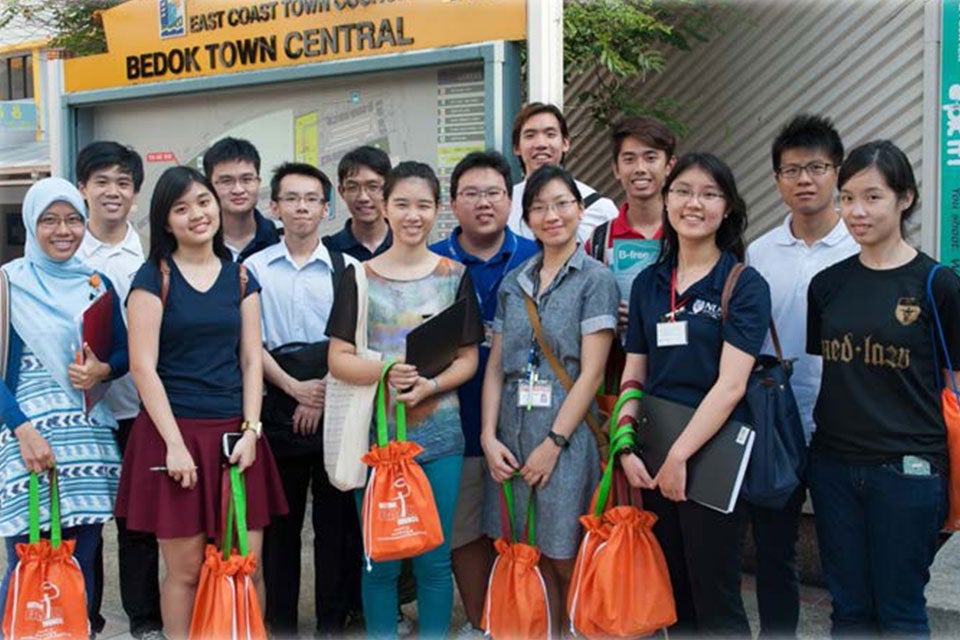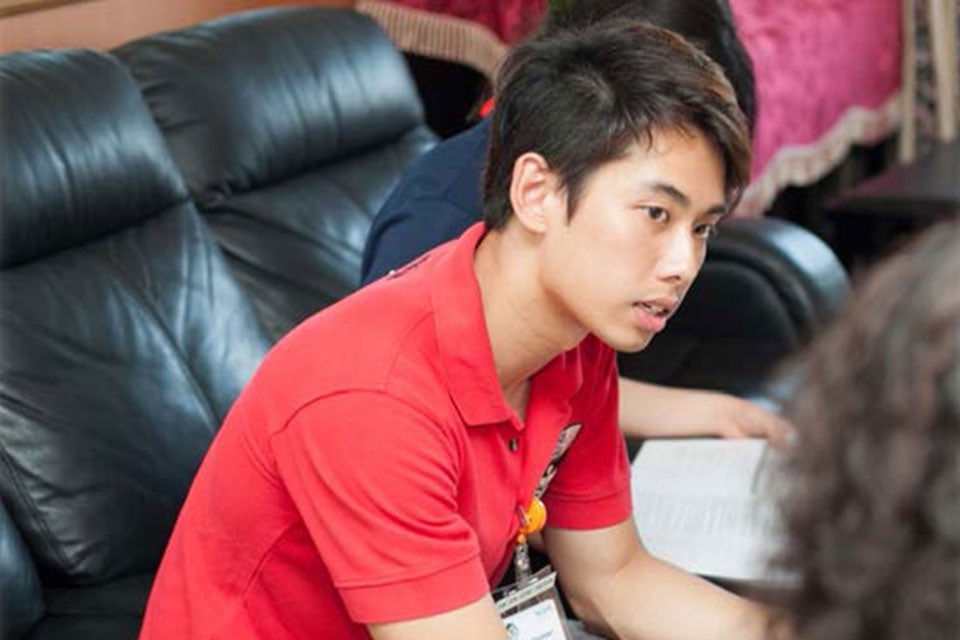Community Health Project on Hepatitis B
Published: 28 Apr 2014
The School’s Community Health Project (CHP) is an undergraduate programme specially designed by the Saw Swee Hock School of Public Health. The programme allows Phase IV medical students to apply coursework learnt from the Information Literacy and Medicine & Society tracks, by defining and uncovering a research problem in the community.
33 students embarked on a project entitled “Knowledge, Attitudes and Practices regarding Hepatitis B Infection, Screening and Vaccination in Singapore”, which aims to assess the knowledge and stigma for Hepatitis B in the general population. The project also allowed the medical students to identify the determinants, facilitators and barriers towards screening and vaccination. This study represents the first cross-sectional study in Singapore that looks into the prevalence of Hepatitis B infection amongst the population who missed the newborn Hepatitis B vaccination established in 1987.
During the coursework, the students conducted three focus group discussions with participants from the community and people who have contracted Hepatitis B. These discussions were designed to generate novel factors, which together with the information gathered from the literature review, contributed to the development of a questionnaire survey. The survey was carried out door-to-door with participants aged 25 to 69 years who were Singapore citizens or permanent residents of Bedok.
With the support and sponsorship from the NUS Yong Loo Lin School of Medicine Dean’s Office Institutional Relations department, NUS Student’s Union, Health Promotion Board, Public Utilities Board, Singapore Pools and National Family Council, the students were able to give out goodie bags during the door-to-door visits, educate the public about Hepatitis B infection and inform them of the importance of screening and vaccination. Referral letters were also given to participants noted to have been infected with Hepatitis B but were not on follow-up.
Through the project, the students gained valuable insights on Hepatitis B – as a disease and a public health concern. The interaction with the community and people infected with Hepatitis B changed the way the students thought about the disease and healthcare system in Singapore. It also sparked multiple questions among the students and helped them to understand that more support can be provided for these individuals – socially, medically and financially. The project left an impact on the students, motivating them to serve the community in a more holistic way as future clinicians.


